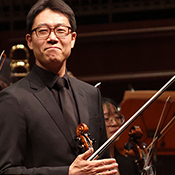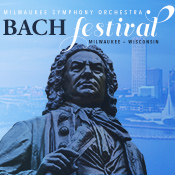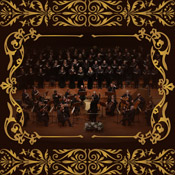
Nicholas McGegan Leads Haydn Filled Program
David Lewellen
PUBLISHED
Tagged Under: 2024.25 Season, Conductor
Nicholas McGegan has a bucket list when he comes to Milwaukee.
The British conductor and harpsichordist, who specializes in the Baroque and Classical periods, has been a regular visitor to the Milwaukee Symphony for nearly four decades. When he’s not rehearsing or performing here on Jan. 17-18, he will have other things to do.
“I’m not used to snow, so I’m looking forward to that,” he said recently by Zoom from Scotland. “I can’t wait to get back to the Third Ward, all the shops there and the Public Market, and to see my friends. And the art museum — that’s a must.”
McGegan’s first visit to the MSO was in 1985, to celebrate the tricentennial of Bach’s and Handel’s birth. For several years afterward, he conducted multiple programs per season and had a title with the MSO (he can’t remember what). “I loved working with the chorus, too. It was always a great treat,” he said. “The new hall is terrific — absolutely wonderful.”
From his time as a student at Cambridge in the late 1960s, McGegan has been a full participant in the evolution of the early music movement. He started his career as a Baroque flutist and harpsichordist, working with figures such as John Eliot Gardiner and Christopher Hogwood, who popularized the practice of playing music from the 1600s and 1700s on the instruments the composers had in mind.
But McGegan dismisses “the whole-wheat version” that some performers espoused in earlier decades. “‘Authentic’ is rubbish,” he said. “No one knows how it really sounded, and it doesn’t matter, because we’re performing it now, not the composers. And it’s also wrong to think that composers did it only one way. It might be quite different from one performance to the next. Even if it’s original instruments, it could still be a terrible performance. A good performance is one that moves the person who’s listening to it, and that’s more important than what it’s played on.”
Over the years, McGegan has found that his comfort zone is “Monteverdi to Mendelssohn, which is actually quite a long period” — from the late 1500s to the mid-1800s. “I like to listen to Puccini and Verdi, but I don’t have a great wish to conduct it. The same with Stravinsky. There are people who speak that language so much better than I do.”
The program he will lead in Milwaukee fits squarely within those boundaries, as he leads works by Mozart, Mendelssohn, Franz Joseph Haydn (the famous one), and his brother Michael Haydn (the other one). But McGegan is happy to tell stories about Michael Haydn, who wrote sacred music for the bishop of Salzburg in the mid-1700s, was a colleague of Mozart’s (“if you’re a musician, you know everybody”), and actually wrote a symphony that was mistakenly attributed to Mozart for many years.
Michael’s representation on the Milwaukee program is his incidental music to Voltaire’s play Zaire. It features a percussion battery similar to his older brother’s Symphony No. 100, nicknamed the “Military,” also on the program. Another point in its favor, McGegan said, was that “I know you have a wonderful cor anglais player,” referring to English hornist Margaret Butler. “And the last movement, which represents the heroine of the play, is basically an aria for cor anglais.”
The Milwaukee Symphony uses modern instruments, of course, but there is a vast middle ground to explore. McGegan said that most orchestra musicians today have been exposed to historic performance practice in conservatory or on the job. To make it easier to get the results he wants, he will bring his own orchestral parts to Milwaukee, with specific articulations and rhythms already marked.
“Conductors should never preach,” he said. “I know because I’ve done it, giving a sermon on the mount about style.” But with more experience, and working with musicians he already knows, “it will be lovely to come back,” he said. “The only new thing is the hall, and that’s a great improvement.”



